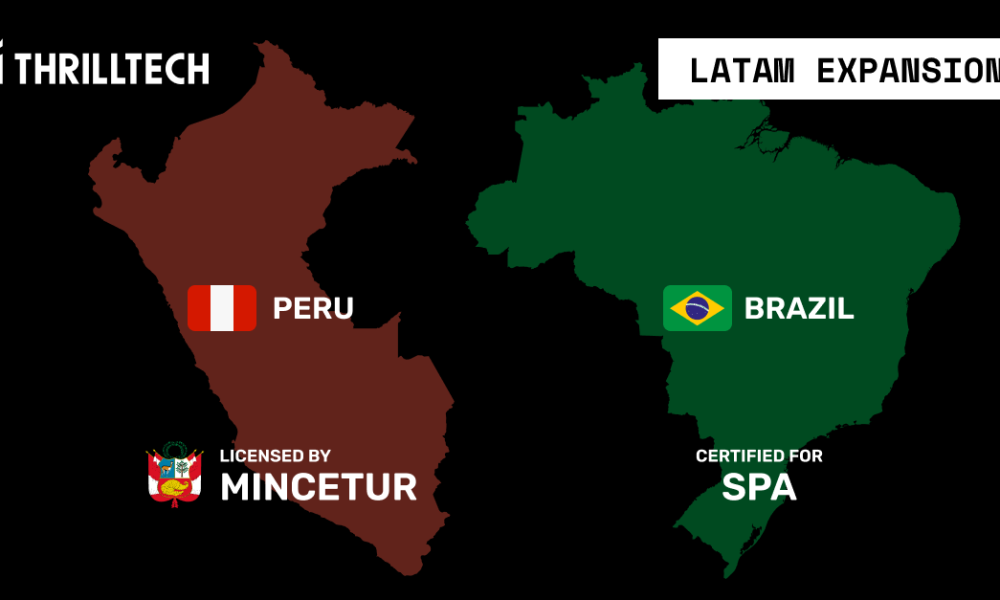

Compliance Updates
UKGC Names Allwyn as Preferred Applicant for the Fourth National Lottery Licence
The UK Gambling Commission (UKGC) has named Allwyn Entertainment Ltd as Preferred Applicant for the fourth National Lottery licence.
The National Lottery is one of the world’s largest lotteries and the current – third – licence is due to expire in 2024. Since launching in 1994, National Lottery players have collectively raised more than £45 billion for 660,000 good causes across the UK, transforming lives and contributing to the arts, sport, heritage and communities.
The selection of Allwyn as Preferred Applicant follows a fair, open and robust competition which received four applications at the final stage. This is the highest number of applications since the first National Lottery licence was awarded in 1994.
Alongside Allwyn, the other applicants were Sisal Spa, Camelot UK Lotteries Ltd and The New Lottery Company Ltd. Camelot UK Lotteries Ltd has been named Reserve Applicant.
Andrew Rhodes, CEO of UKGC, said: “In its lifetime, the National Lottery has raised more than £45 billion for good causes and is rightly seen as a great national asset.
“Our priority was to run a competition that would attract a strong field of candidates. Having received the most applications since 1994, it is clear that we’ve achieved just that.
“I am confident that the success of the competition will lead to a highly successful fourth licence – one that maximises returns to good causes, promotes innovation, delivers against our statutory duties, and which ultimately protects the unique status of the National Lottery.
“We look forward to working with all parties to ensure a smooth handover.”
John Tanner, Gambling Commission Executive Director and Senior Responsible Owner for the competition, said: “The Commission is grateful to all four applicants for their engagement in the competition. We were impressed by the overall standard of applications, including the range and quality of innovation proposed, and the high level of confidence and ambition demonstrated for the prospects of the National Lottery under the fourth licence.”
Brazil
ThrillTech secures regulatory approvals to launch jackpots in Latam

Peru and Brazil to provide launchpad for Latam expansion as ThrillTech strengthens presence in emerging regulated markets
ThrillTech, the B2B jackpot specialist, has taken a significant step forward in its international growth strategy after securing a B2B licence in Peru and regulatory certification in Brazil.
The approvals clear the path for ThrillTech to launch its proprietary player-funded jackpot solutions in Latin America for the first time, bringing its flagship ThrillPots product to one of the world’s most exciting and emerging regions for iGaming.
Latin America has become a focal point for operators in recent years, with Brazil’s market liberalisation and Peru’s structured regulatory framework, as set out by the country’s ministry of foreign trade and tourism (MINCETUR), providing fertile ground for innovative engagement tools.
By working tirelessly to secure entry into both countries, ThrillTech is positioning itself to support operators with compliant, performance-driven jackpot mechanics that can drive revenue and enhance retention.
Peter Mares, CTO and co-founder of ThrillTech, said: “Expanding into Latin America is a milestone moment for us. The region is bursting with opportunity, but it also demands solutions that are flexible, transparent, and built to scale. With a licence in Peru and certification in Brazil, we are ready to deliver the same measurable revenue impact to operators in Latam that we’ve already proven in Europe.
ThrillTech’s products are designed to provide operators with new revenue streams through side-bet jackpots, while also offering real-time engagement mechanics via cash-only rewards.
Already integrated with multiple tier-one operators in Europe, ThrillTech is now primed to replicate that success in Latam by delivering regulator-approved solutions to local operators.
The post ThrillTech secures regulatory approvals to launch jackpots in Latam appeared first on Gaming and Gambling Industry in the Americas.
Asia
Digital gaming disruption tackled in 1st AsPac Regulators’ Forum

Regulators from across the Asia-Pacific region underscored the need to adapt to digital disruption in the gaming industry during the first-ever Regulators’ Forum held in Manila on Thursday, September 11.
In her keynote address, Philippine Amusement and Gaming Corporation (PAGCOR) President and COO Wilma Eisma said that while gaming jurisdictions across the region vary in size and maturity, they share common challenges such as cross-border transactions, rapid digitalization, and balancing economic benefits with social responsibility.
“In the Philippines, electronic gaming has become a significant growth driver and PAGCOR has responded with initiatives that ensure accountability, security, and consumer protection while allowing the industry to thrive responsibly,” Ms. Eisma said.
However, she said that digitalization, remote gaming, and emerging platforms are testing the limits of traditional oversight models.
“By exchanging best practices, aligning responsible standards, and keeping pace with innovation, we can ensure that the region’s gaming industry grows not just in size but in trust, resilience, and sustainability,” she said.
Ms. Eisma said PAGCOR has introduced reforms such as stricter advertising rules, stronger financial safeguards, and expanded responsible gaming programs but noted that the greater challenge lies in keeping pace with the rapid evolution of online and remote gaming.
The PAGCOR executive also expressed hope that the Regulators’ Forum will become an annual platform for dialogue, with an expanded edition already being planned for 2026.
“I am confident that this Regulators’ Forum will evolve into a hub for knowledge, collaboration and shared commitment,” she said. “Together, let us set the tone for gaming regulation in Asia: one that is innovative, collaborative and firmly anchored on integrity.”
The event was organized by PAGCOR and Inside Asian Gaming (IAG) and hosted by Newport World Resorts. It gathered regulators, operators, and stakeholders from across the region to tackle concerns on player protection and financial integrity, among others.
The post Digital gaming disruption tackled in 1st AsPac Regulators’ Forum appeared first on European Gaming Industry News.
Compliance Updates
MGCB Renews Licenses for Detroit’s Three Commercial Casinos, Highlighting Continued Community and Economic Impact

The Michigan Gaming Control Board (MGCB) unanimously approved license renewals for Detroit’s three commercial casinos—MGM Grand Detroit, MotorCity Casino, and Hollywood Casino at Greektown—during its regularly scheduled public board meeting.
The annual approval follows a comprehensive review of each casino’s operations, regulatory compliance, and commitment to responsible gaming practices, as required under the Michigan Gaming Control and Revenue Act. The decision ensures that Detroit residents and visitors can continue to enjoy a safe, secure, and well-regulated gaming environment.
“Detroit’s commercial casinos are not only entertainment destinations but also major contributors to the city and state economies. By renewing these licenses, the Board reaffirms its commitment to a gaming industry that promotes integrity, accountability, and community benefit. Our oversight helps ensure that patrons have a fair and responsible experience, while Michigan residents continue to see the economic value generated by casino revenues,” said MGCB Executive Director Henry Williams.
The Detroit casinos play a vital role in supporting public services through wagering and sports betting taxes. Licensees are taxed at a rate of 19% on adjusted gross receipts, with 8.1% going to the state and 10.9% to the City of Detroit, along with development agreement payments. Casinos also pay an 8.4% tax on retail sports betting qualified adjusted gross receipts and annual fees that support the state’s regulatory functions. These funds help sustain city services, economic development, and state initiatives.
The MGCB also emphasized the importance of small business participation in the casino supply chain, with measures in place to broaden opportunities for local vendors and suppliers.
Each of Detroit’s three casinos will be eligible for renewal again in September 2026.
The post MGCB Renews Licenses for Detroit’s Three Commercial Casinos, Highlighting Continued Community and Economic Impact appeared first on Gaming and Gambling Industry in the Americas.
-

 gaming3 years ago
gaming3 years agoODIN by 4Players: Immersive, state-of-the-art in-game audio launches into the next generation of gaming
-
EEG iGaming Directory9 years ago
iSoftBet continues to grow with new release Forest Mania
-
News8 years ago
Softbroke collaborates with Asia Live Tech for the expansion of the service line in the igaming market
-
News7 years ago
Super Bowl LIII: NFL Fans Can Bet on the #1 Sportsbook Review Site Betting-Super-Bowl.com, Providing Free Unbiased and Trusted News, Picks and Predictions
-
iGaming Industry8 years ago
Rick Meitzler appointed to the Indian Gaming Magazine Advisory Board for 2018
-
News7 years ago
REVEALED: Top eSports players set to earn $3.2 million in 2019
-
iGaming Industry8 years ago
French Senator raises Loot Boxes to France’s Gambling Regulator
-
News7 years ago
Exclusive Interview with Miklos Handa (Founder of the email marketing solutions, “MailMike.net”), speaker at Vienna International Gaming Expo 2018








